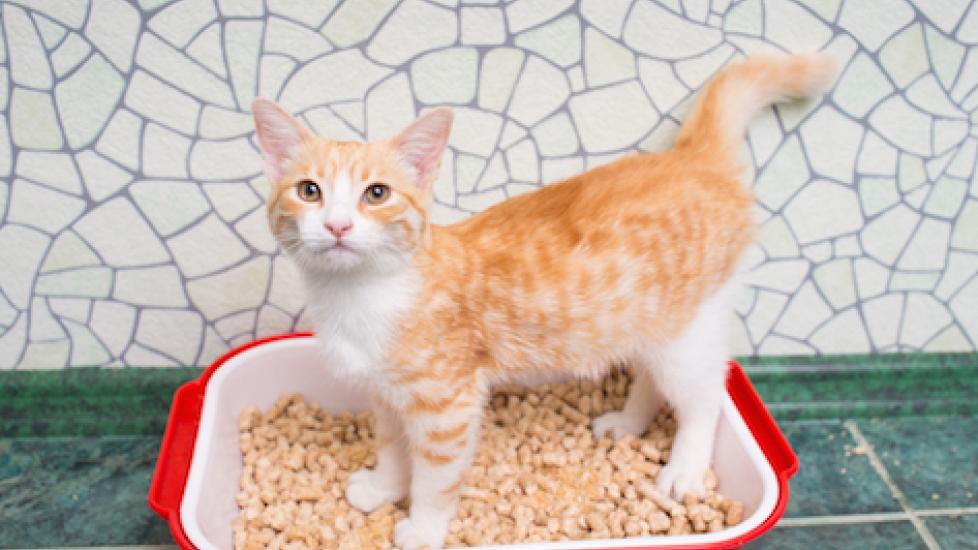How to Treat Hematuria in Cats
By Dr. Jennifer Coates, DVM
If your cat has been diagnosed with hematuria (blood in the urine), this is what you can expect to happen next:
- Medication: Your veterinarian may prescribe any of a number of medications (e.g., antibiotics or urinary acidifiers) depending on the underlying cause of your cat’s hematuria.
- Surgery: Surgical procedures, like those that remove bladder stones, may be necessary in some cases.
- Diet: Special diets may be prescribed, particularly if your cat has bladder stones. Increasing water consumption is an important part of treating many causes of hematuria, so canned foods are usually best.
What to Expect at the Vet’s Office
The veterinarian will need to determine what disorder is to blame for your cat’s hematuria. He or she will start with a physical examination and complete health history, often followed by some combination of diagnostic tests. Possibilities include:
- A blood chemistry panel
- Complete blood cell count
- Urinalysis
- Urine culture and antibiotic sensitivity testing
- Abdominal x-rays and/or ultrasound
Appropriate treatment will depend on the results of these tests and the eventual diagnosis. Some of the more common disorders that cause hematuria in cats are:
Feline Idiopathic Cystitis (FIC) — Medications used in the treatment of FIC include pain relievers (e.g., buprenorphine), anti-anxiety medication (e.g., amitriptyline, clomipramine, or fluoxetine), and nutritional supplements (e.g., glucosamine or pentosan polysulfate sodium). Canned food is recommended to promote the formation of dilute urine. Many cats with FIC experience intermittent flare-ups regardless of treatment. Stress relief, including clean litter boxes, ample opportunities for play and mental stimulation, preventing conflicts between feline housemates, and maintaining a consistent home environment are vital to reducing the frequency and severity of FIC attacks.
Urinary Tract Infection — Feline urinary tract infections are treated with antibiotics. Sometimes a urine culture and antibiotic sensitivity testing is necessary to determine what antibiotic will resolve the infection. If the infection occurs in conjunction with struvite bladder stones, a special diet or urinary acidifier will also be necessary to dissolve the stones.
Bladder Stones — Struvite bladder stones can usually be dissolved with a prescription diet or medications that acidify the urine. Calcium oxalate and other types of bladder stones are best removed via surgery.
Cancer — Cancer of the urinary tract can cause hematuria. Treatment may include surgery, chemotherapy, radiation, or palliative therapy.
Trauma — Injuries can lead to bleeding within the urinary tract. Rest, pain relief, symptomatic/supportive care (e.g., blood transfusions), and sometimes surgery is necessary if a cat is to recover.
Bleeding Disorders — Conditions that disrupt the normal formation of blood clots can cause hematuria in cats. Treatment depends on the underlying cause (e.g., Vitamin K for some types of poisonings).
What to Expect at Home
Cats who are under treatment for hematuria should be kept indoors so they can be closely monitored, encouraged to eat and drink, and take any prescribed medications. When cats are taking antibiotics for a urinary tract infection, they should take the entire course, even if their condition rapidly returns to normal. Follow your veterinarian’s instructions regarding any other medications that have been prescribed.
Modifications to the diet and home environment are an important part of managing some cats with hematuria. Feeding canned and/or prescription food, keeping fresh water available at all times, and stress relief are common recommendations.
Questions to Ask Your Vet
Ask your veterinarian what the possible side effects are of the medications your cat is taking. Find out when he or she next wants to see your cat for a progress check and whom you should call if an emergency arises outside of your veterinarian’s normal business hours.
Possible Complications to Watch For
Talk to your veterinarian if you have any questions or concerns about your cat’s condition.
- Some cats who take medications can develop side effects such as loss of appetite, vomiting, diarrhea, etc. Make sure you understand what your cat’s reaction to any prescribed medications should be.
- It is possible for a cat to appear to be on the road to recovery and then suffer a setback. If your cat strains to urinate, produces only a small amount of urine at any given time, urinates very frequently, seems to be uncomfortable while urinating, urinates outside the litter box, or the hematuria worsens, call your veterinarian.
- Male cats with hematuria may be at risk for becoming “blocked,” a potentially fatal condition that completely prevents them from passing urine. If your cat is showing signs of discomfort and you aren’t sure that he is urinating freely, call your veterinarian immediately.
Image: Tiplyashina Evgeniya / Shutterstock
Related Content
Urintary Tract Stones/Crystals Made Up of Uric Acid in Cats
Abnormal Urine Outflow Due to Urinary Bladder Dysfunction in Cats
Help us make PetMD better
Was this article helpful?
